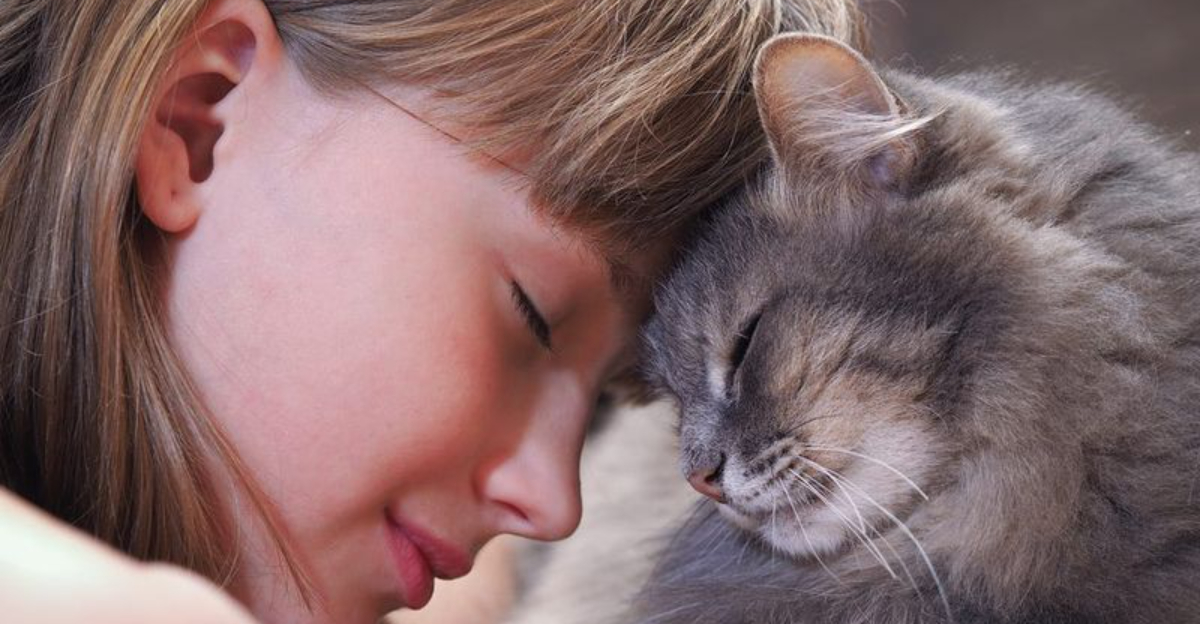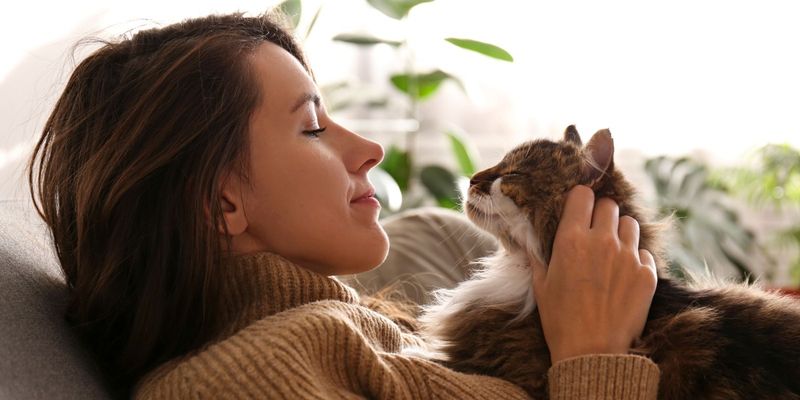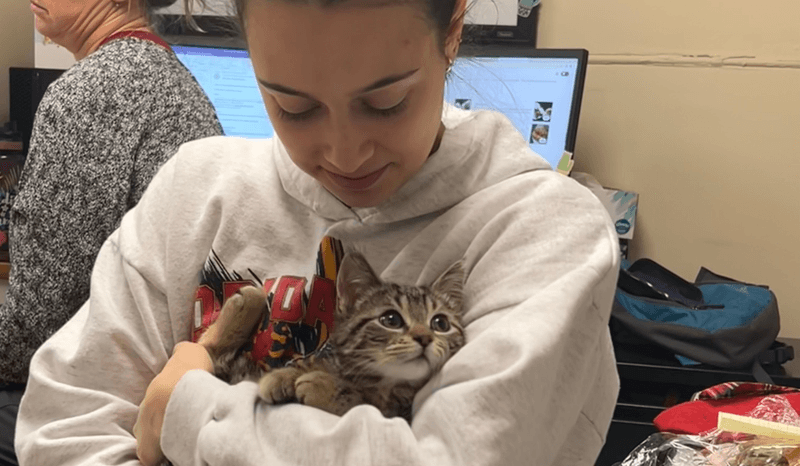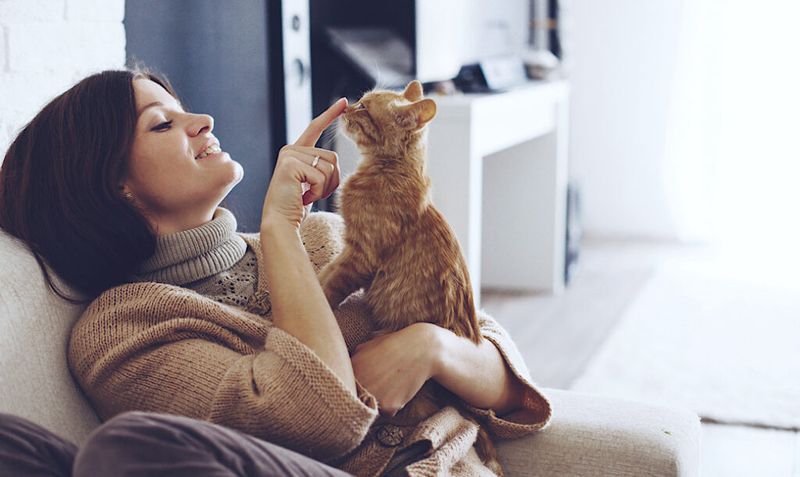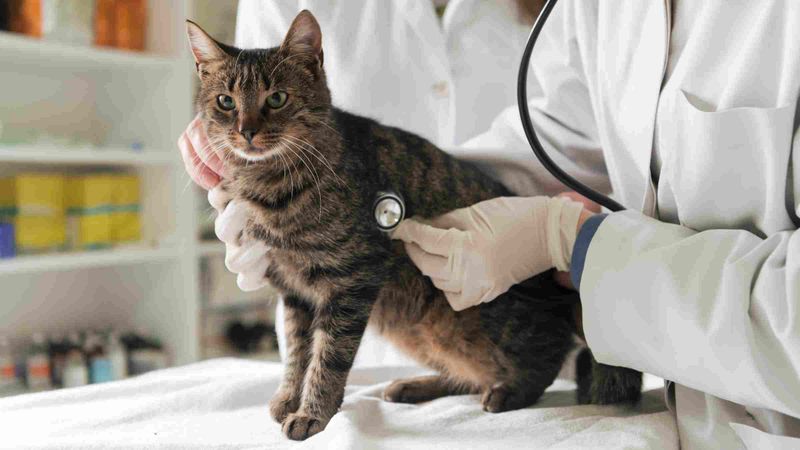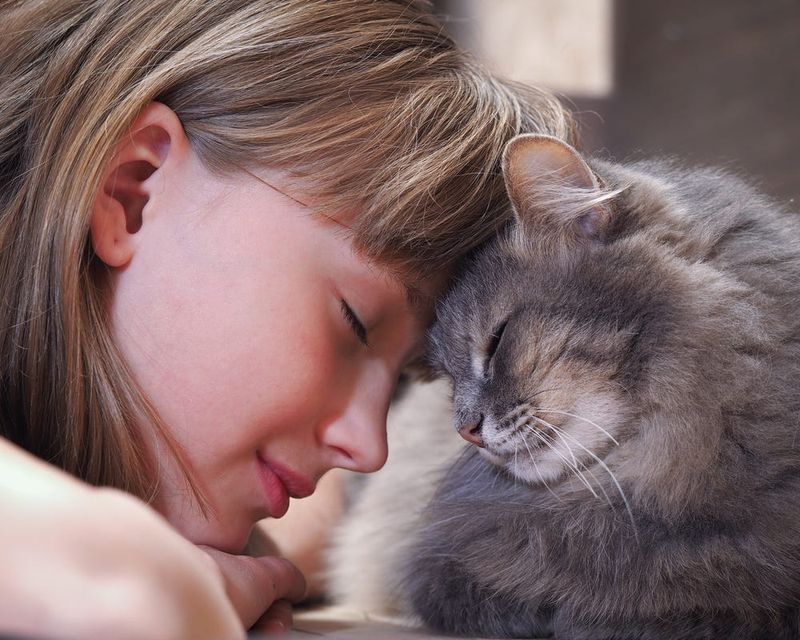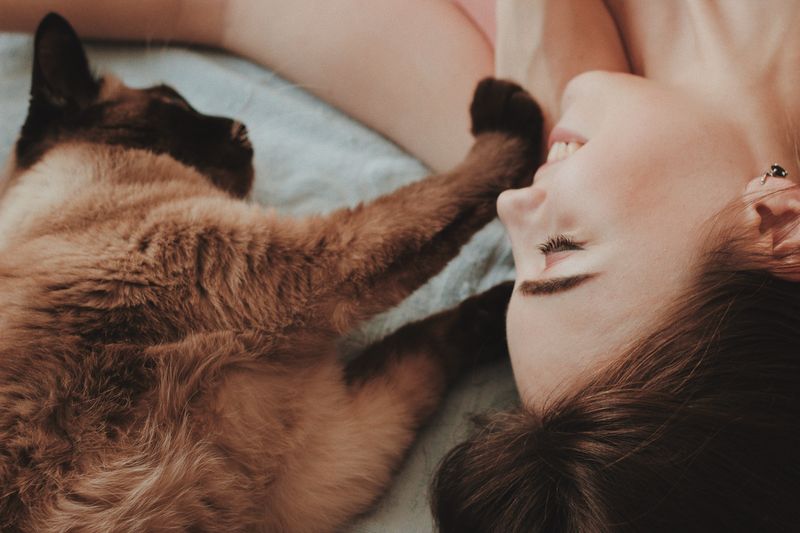📖 Table of Content:
Exploring the relationship between cats and mental health reveals a complex dynamic. While these furry companions offer stress relief and companionship, they also present certain health risks. Understanding this balance is essential for cat owners and enthusiasts alike.
1. Stress Reduction through Feline Companionship
Imagine a quiet evening, a cat purring on your lap, and you can feel the stresses of the day melting away. Petting a cat can heighten relaxation by triggering happy hormones like serotonin. This soothing presence can be a daily escape from life’s chaos. Cats’ mellow demeanor teaches us to pause and enjoy the moment, fostering mindfulness. However, it’s vital to recognize that while most humans may find solace in a cat’s presence, some might feel overwhelmed by their independence.
2. Decreased Anxiety with Cats
Many find that the simple act of watching a cat play or sleep can ease anxiety. Cats’ playful antics and gentle presence often bring joy and laughter, distracting from daily worries. Their rhythmic purring is like a natural lullaby, which can calm frazzled nerves. For those struggling with anxiety, a cat’s companionship offers a reassuring routine. Yet, the responsibility of care might add pressure for some, highlighting the importance of personal readiness for pet ownership.
3. Alleviating Loneliness with Cats
In moments of solitude, a cat’s presence can be a comforting companion. Their silent company and occasional nuzzle remind us that we are not alone. Elderly individuals, in particular, find solace in a cat’s quiet companionship, filling their homes with warmth. Cats don’t judge or demand, simply offering unwavering presence. Yet, it’s crucial to balance this companionship with social interactions with humans, as over-reliance on pets might lead to isolation.
4. Purpose and Routine with Cats
Owning a cat introduces a structured routine, from feeding times to play sessions, offering a sense of purpose. This routine can be especially beneficial for those battling depression, as it instills responsibility and accomplishment. Cats’ needs create daily goals, subtly guiding their owners towards a more organized life. Despite this, potential pet owners must consider their lifestyle suitability for such commitment, as the responsibility can be overwhelming for some.
5. Health Risks Linked to Cats
Cats, while wonderful companions, can pose health risks. Parasites like Toxoplasma gondii are linked to mental health disorders, while cat bites can lead to infections. Allergies to cats are also common, potentially affecting mental well-being. Understanding these risks is crucial, as it helps in taking preventive measures. Regular veterinary visits and hygiene practices minimize these risks, allowing owners to enjoy the benefits of feline companionship without compromising health.
6. The Joy of Cat-Triggered Hormones
Cats’ playful antics and affectionate gestures can trigger the release of ‘happy hormones’ like oxytocin and dopamine. This hormonal boost elevates mood and fosters bond-building. A cat’s gentle nudge or playful swipe can ignite a wave of joy and connection. For individuals prone to low moods, this natural high can be a delightful pick-me-up. However, it’s important to remember that these benefits vary among individuals, with some not responding as positively.
7. Balancing Benefits and Risks
Finding equilibrium between the joys and potential pitfalls of cat ownership is key. While they offer emotional enrichment and stress relief, cats also come with responsibilities and risks. Weighing these aspects helps potential owners make informed decisions. A feline friend can be a wonderful addition to one’s life, but it’s essential to be ready for the commitment involved. Thoughtful consideration and preparedness ensure a harmonious relationship, benefiting mental health.
